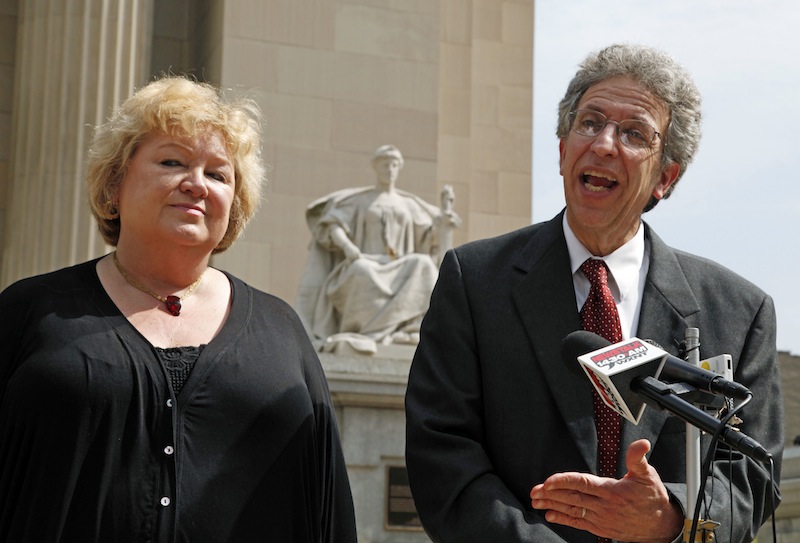INDIANAPOLIS — Indiana will likely stop defending a law that stripped Medicaid funds from Planned Parenthood after the Supreme Court declined to hear the case Tuesday, an attorney who represents the nation’s largest abortion provider said.
Indiana is among more than a dozen states that have enacted or considered laws to prevent taxpayers’ money from funding organizations that provide abortion. The 7th U.S. Circuit Court of Appeals ruled Oct. 23 that the 2011 law targeting Planned Parenthood went too far because it denied women the right to choose their own medical providers.
“I assume at this point the state will give up in its claim that that portion of the statue is valid under the Social Security Act,” said Ken Falk, legal director of the American Civil Liberties Union of Indiana. The case now returns to U.S. District Judge Tanya Walton Pratt, who granted the initial preliminary injunction to temporarily block the law, precipitating the state’s appeals.
The Family and Social Services Administration — the agency tasked with enforcing the law — declined comment.
“My office always contended this is ultimately a dispute between the state and federal government, not between a private medical provider and the state,” Indiana Attorney General Greg Zoeller said in a statement. Zoeller’s office handled the state’s appeal.
Gov. Mike Pence, a fierce opponent of Planned Parenthood during his time in Congress, said he will decide what to do after viewing his legal options.
“We’re disappointed in the court’s decision, we obviously strongly supported the efforts of 2011,” Pence said Tuesday. “I continue to believe and feel strongly that taxpayers should not be required to support the largest abortion provider in America.”
The justices who rejected the state’s appeal of the appeals’ court ruling also did not comment.
The law aimed to deny Planned Parenthood funds from the joint federal-state Medicaid health program for the poor that are used for general health services including cancer screening.
Planned Parenthood warned that the law would deny more than 9,000 women access to other important health care services such as breast cancer screenings, birth control and prevention and treatment of sexually transmitted diseases. The organization was forced to stop seeing Medicaid patients for little more than a month, between the time the law was signed and the district court ruling saying it couldn’t be enforced.
“While the state has been trying to score political points and wasting taxpayer dollars, we’ve been standing up for the Hoosiers who count on us every day. We look forward to the day the preliminary injunction in this case becomes permanent,” Betty Cockrum, president and CEO of Planned Parenthood of Indiana, said in a statement.
Pratt’s June 2011 decision blocked parts of the abortion law and granted Planned Parenthood of Indiana’s request for a preliminary injunction on the state’s move to defund the organization. Her decision sided with federal officials who said states cannot restrict Medicaid recipients’ freedom to choose their health care provider or disqualify Medicaid providers merely because they also offer abortions.
Sen. Scott Schneider, R-Indianapolis, who sponsored the original bill, said he was disappointed the justices declined to hear the case because he believed the rulings left open a loophole in federal law barring public funding for abortion.
He said anti-abortion legislators would have to study the ruling and determine if there might be another approach.
Falk said the court rulings leave intact the state’s power to block Planned Parenthood from receiving federal grants through the U.S. Department of Health, but those funds were a far smaller amount than the money the organization received from Medicaid.
The case now goes back to Pratt, who will decide whether to make the preliminary injunction permanent. Pratt was appointed in 2010 by President Barack Obama.
Send questions/comments to the editors.



Comments are no longer available on this story